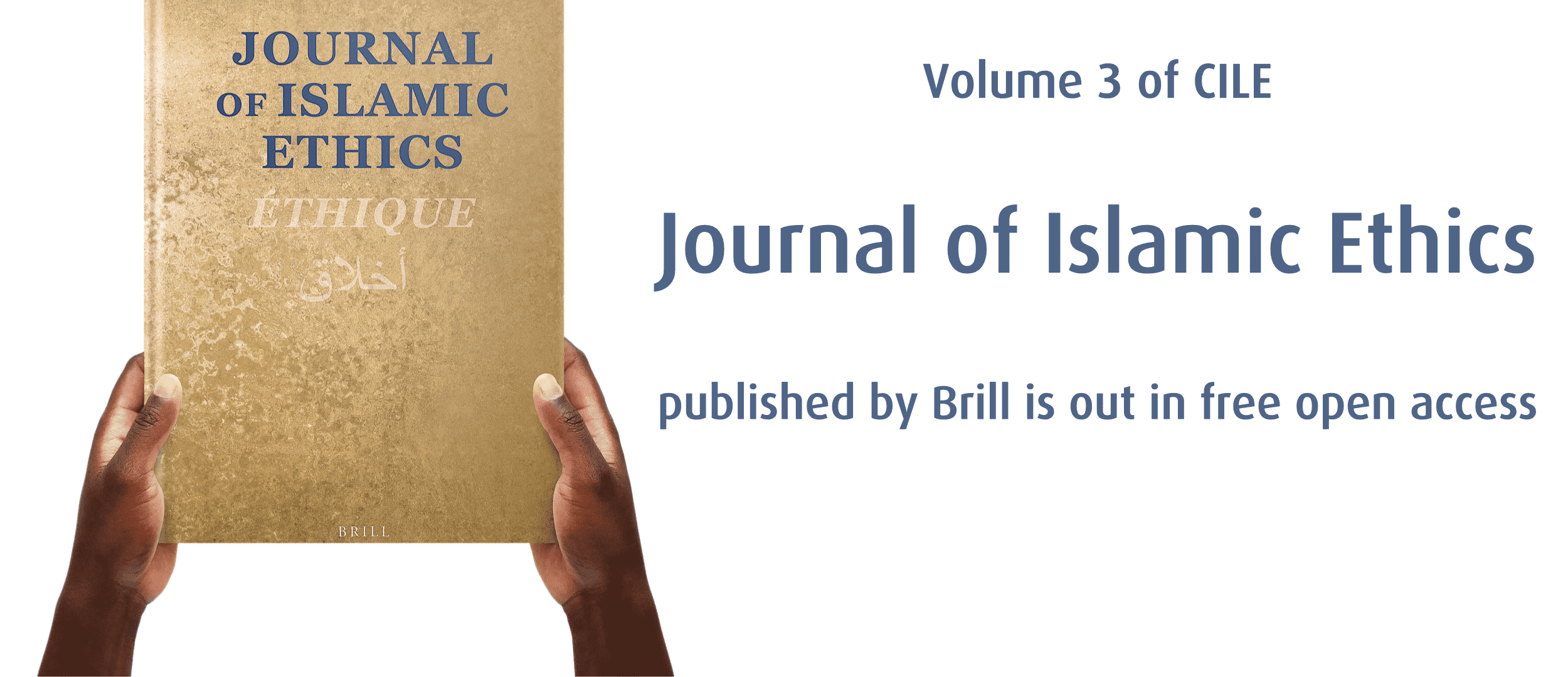
CILE Journal of Islamic Ethics: Volume 3 is out
The Research Center for Islamic Legislation and Ethics (CILE) announces the publishing of the third volume of its “Journal of Islamic Ethics” (JIE) in collaboration with BRILL, under the title:
Contemporary ijtihād, ethics and modernity
CILE Journal of Islamic Ethics available in Open Access for free
The Journal of Islamic Ethics is a full Open Access journal that focuses on the ethical approaches embedded in Islamic philosophy, theology, mysticism and jurisprudence as well as Islamic civilization in general - and their intersection with applied fields like Arts, Bioethics, Economics, Education, Environment, Gender, Media, Methodology, Migration & Human Rights, Politics and Psychology.
The Journal is open to all voices, regardless of their specific positions or backgrounds, with a keen interest in making seminal contributions to the fields listed above.
Dr. Mu'taz A. Al Khatib, CILE Assistant Professor of Methodology at the College of Islamic Studies within Hamad Bin Khalifa University tells us more about this Volume 3:
"The practice of independent legal reasoning (ijtihād) is a core tool for achieving the moral mission of the discipline of Islamic jurisprudence (fiqh); it generates juristic rulings that help people become morally committed humans. Without ijtihād, it would be inconceivable that Islamic divine law could achieve its moral mission in every time and every place. Modern scholarship has not fully explored the link between ijtihād and ethics. Most academic studies focused on the purported “closing” of the gate of ijihād, as demonstrated in the writings of many Western scholars (Schacht 1982, 69–75; Coulson 1978, 80; Hallaq 1984, 3–41; Ali-Karamali and Dunne 1994, 238–257). Muslim scholars who wrote critical works on ijtihād were occupied with questions related to the heritage of school-based fiqh and to what extent contemporary scholars should abide by, or move beyond, this heritage, and how ijtihād could be implemented in modern times (al-Nimr 1987, 105–111; al-Zarqā 1989, 147–162; al-Qaraḍāwī 1996, 101–108; ʿAṭiyya 2000, 31-49; Bin Bayya 2011, 89–127). In this thematic issue, we emphasize the link between ijtihād and ethics. All articles included in this Volume 3 of "Journal of Islamic Ethics" address key ethical questions, many of which are the product of the age of modernity."
- Read full paper online down below or download as PDF to read later:
- Journal of Islamic Ethics Volume 1 (2017)
- Journal of Islamic Ethics Volume 2 (2018)
- Journal of Islamic Ethics Volume 3 (2019)














إضافة تعليق جديد